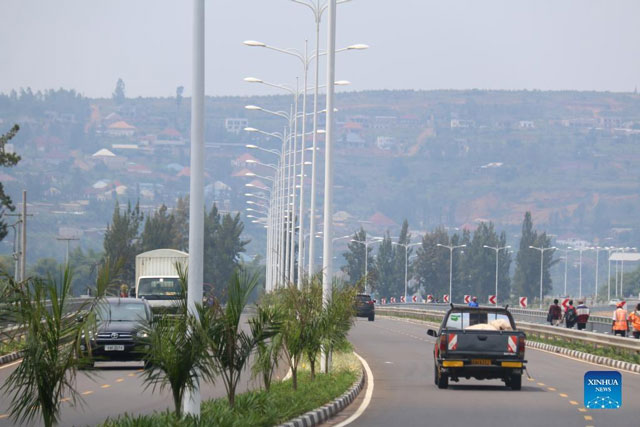
Despite their lower populations and economic sizes, investors are increasingly attracted to the stability and well-regulated environments of a number of Africa’s “smaller” markets like Rwanda.
SPECIAL REPORT | BIRD AGENCY | Small African economies are punching above their weight to emerge as the most attractive to investors, bolstered by their higher economic and personal freedoms.
A new study, ‘The 2024 RMB Where to Invest in Africa report,’ shows that investors are looking beyond markets with big populations and larger economies. Instead, they are seeking destinations with higher levels of stability and growth opportunities in a well-regulated environment.
The report, developed by Rand Merchant Bank(RMB) in collaboration with the Gordon Institute of Business Science, ranks two island nations — Seychelles and Mauritius — as the most attractive investment destinations in Africa, respectively.
“Seychelles leads the rankings thanks to high levels of personal freedom, human development, and a stable economic environment. Seychelles offers a unique and attractive investment climate,” according to the report.
“Despite scoring lower on economic size and potential, Mauritius is known for innovation, economic freedom, and high GDP per capita. The report adds that it continues to be a top destination for investors seeking stability and growth opportunities in a well-regulated environment.
Due to their more advanced economies and solid international presence, the two countries have been described as ‘global connectors’.
In 2021, RMB in a similar ranking had placed Egypt as Africa’s top investment destination followed by Morocco and South Africa, respectively. The current report shows the tables have turned for the giant economies.
Four key metrics were used to rank 31 countries, representing 92% of Africa’s economic activities as measured by Gross Domestic Product(GDP).
The metrics are social and Human development, economic stability and Investment climate, Market accessibility and innovation, and economic performance and potential.
The report’s authors said they relied on data sets from global institutions, including the World Bank, the International Monetary Fund, the African Development Bank, the United Nations, and the International Labour Organisation.
Other smaller markets described as ‘Low-Base Boomers’ with high potential for explosive growth include Rwanda, Mozambique, and Benin.
Rwanda ranks fifth on the continent in terms of economic stability and investment climate and fairly in terms of market access and innovation.
Mozambique ranks 10th on economic performance and potential, while Benin ranks sixth on social and human development, and 10th on economic stability and innovation, it also ranks fairly on economic performance and potential.
Cote d’Ivoire (social and human development, Economic performance and potential) and Namibia ( economic stability and investment climate and on market access and innovation) have also proved their investment attractiveness, giving giant economies a run.
A number of larger economies like Egypt, South Africa, and Morocco are in third, fourth and fifth places, respectively, as they battle to retain their shine to match their economic muscles.
Egypt topped the rankings in terms of economic performance and potential, market access, and innovation. However, the North African country ranked poorest at position 23 on economic stability and investment climate.
“Egypt represents Africa’s largest economy by GDP (2023), offering a substantial market with diverse opportunities in sectors like technology, manufacturing, and services. Its strategic location and economic complexity further enhance its attractiveness” said the report.
Fourth-ranked South Africa, which topped the rankings on market accessibility and innovation, had a satisfactory rating on its economic stability and investment climate but ranked poorly on social and human development.
“Despite facing significant challenges, South Africa remains a crucial hub for investment in Africa. Its robust financial sector, diverse economy, and potential for infrastructure development make it a key player,” according to the report.
Closing on the top 5 most attractive investment destinations, Morocco also had its best rankings in market accessibility and innovation, economic stability and investment climate.
“Morocco’s strong performance in connectedness, innovation, and economic stability positions it as a top investment destination. Its strategic proximity to European markets adds to its appeal,” said the report.
Nigeria ranked ninth most attractive destination overall and scored second highest on economic performance and potential but had poor scores on market accessibility and innovation, economic stability, and investment climate.
Outside the top 10, Kenya had excellent rankings in social and human development and market accessibility and innovation.
****
SOURCE: Conrad Onyango, bird story agency
 The Independent Uganda: You get the Truth we Pay the Price
The Independent Uganda: You get the Truth we Pay the Price



